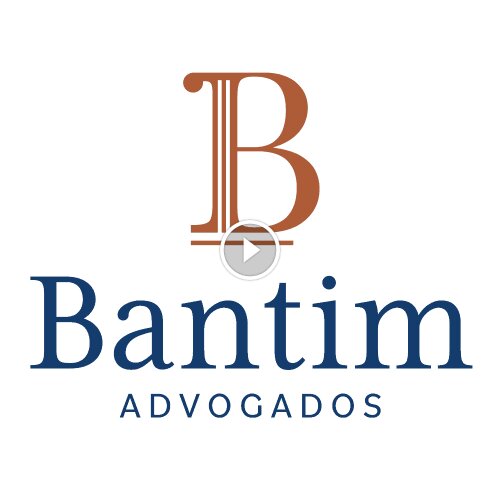Best Debt Capital Markets Lawyers in Sao Paulo
Share your needs with us, get contacted by law firms.
Free. Takes 2 min.
List of the best lawyers in Sao Paulo, Brazil
About Debt Capital Markets Law in Sao Paulo, Brazil
Sao Paulo is the financial powerhouse of Brazil and hosts the largest capital markets in Latin America. Debt Capital Markets (DCM) refer to the platforms and mechanisms where entities such as corporations, banks, and governments raise funds by issuing debt instruments like bonds, debentures, and notes. The legal framework governing these transactions is shaped by federal and local regulations, stock exchange rules, and norms from financial authorities such as the Brazilian Securities and Exchange Commission (CVM). Sao Paulo’s dynamic environment supports a wide range of debt offerings, both for public and private issuers, attracting domestic and international investors.
Why You May Need a Lawyer
Engaging in Debt Capital Markets in Sao Paulo can be complex, involving various regulatory and contractual challenges. Here are common situations where legal assistance is crucial:
- Structuring and registering debt securities offerings
- Navigating compliance requirements set by the CVM and Central Bank of Brazil
- Drafting and reviewing prospectuses, contracts, and agreements
- Negotiating terms with underwriters and investors
- Advising on cross-border offerings and foreign investment rules
- Guiding corporate restructuring or refinancing through debt issuance
- Resolving disputes or regulatory investigations related to debt issuances
- Ensuring ongoing disclosure and reporting obligations are met
A lawyer with DCM expertise helps protect your interests, ensures compliance, and mitigates legal and reputational risks throughout the transaction lifecycle.
Local Laws Overview
Debt issuance and trading in Sao Paulo, like all of Brazil, are overseen by several core laws and regulatory agencies. The key legal aspects include:
- Brazilian Securities Laws: Govern the issuance and trading of securities, including debt instruments, ensuring transparency and investor protection.
- Capital Markets Law (Law 6.385/76): Establishes the framework for securities offerings and ongoing obligations.
- Corporations Law (Law 6.404/76): Regulates company structures and disclosure requirements.
- CVM Regulations: The primary securities regulator enforces rules on debt offerings, disclosure, and market conduct.
- Central Bank Rules: Important for foreign exchange, cross-border investments, and registration of international debt transactions.
- B3 Stock Exchange Rules: Sao Paulo’s main exchange sets specific listing and trading requirements for debt securities.
Local legal practice also takes into account tax aspects, anti-money laundering rules, and contractual law. Navigating these layers effectively often requires specialized knowledge and experience.
Frequently Asked Questions
What are the most common types of debt securities issued in Sao Paulo?
The most common types include debentures (corporate bonds), promissory notes, commercial papers, and, for public entities, government bonds. Each offers different characteristics in terms of maturity, risk, and return.
Who regulates Debt Capital Markets in Sao Paulo?
The primary regulators are the Brazilian Securities and Exchange Commission (CVM) and the Central Bank of Brazil. Additionally, the B3 exchange sets listing rules for publicly traded debt securities.
Do I need to register a debt offering with the CVM?
Public offerings generally require registration with the CVM. However, certain private placements or offerings to qualified investors may be exempt from full registration but must still follow specific reporting or notification requirements.
Can foreign companies issue debt securities in Sao Paulo?
Yes, but foreign issuers must comply with local laws, which may include appointing a legal representative and meeting disclosure requirements tailored to cross-border transactions.
What is the typical timeline for a debt issuance?
The timeline varies based on the complexity of the deal and regulatory requirements but usually ranges from a few weeks to several months from the initial structuring to settlement.
What are the ongoing obligations after a debt issuance?
Issuers must meet periodic disclosure, reporting, and audit requirements as set by the CVM, B3, and other regulators. This includes providing financial statements and material event disclosures.
Is it possible to restructure or refinance existing debt?
Yes, legal tools and market instruments are available for restructuring or refinancing. A lawyer can guide you through negotiations, regulatory filings, and contract updates.
Are there restrictions on who can invest in debt securities?
Some offerings are limited to qualified or institutional investors, but others are open to retail investors depending on structure, risk, and regulatory classification.
What are the main risks involved in debt capital markets?
Risks include default by issuers, market volatility, regulatory changes, and compliance failures. Legal and financial due diligence are essential to manage these risks.
How can a lawyer help with a cross-border debt transaction?
A lawyer can advise on applicable Brazilian and foreign laws, handle documentation, manage foreign exchange issues, and liaise with local regulators to ensure a compliant and efficient process.
Additional Resources
If you need more information or support regarding Debt Capital Markets in Sao Paulo, consider reaching out to the following organizations:
- Brazilian Securities and Exchange Commission (CVM) - Regulates securities offerings and provides guidance materials.
- Central Bank of Brazil - Supervises financial and foreign exchange aspects of debt transactions.
- B3 (Brasil Bolsa Balcão) - Primary exchange for listing and trading debt securities.
- Associação Brasileira das Entidades dos Mercados Financeiro e de Capitais (ANBIMA) - Industry body providing market guidelines and standards.
- Local and international law firms specialized in Brazilian capital markets.
Next Steps
If you are considering entering the Debt Capital Markets in Sao Paulo, it is crucial to take the following steps:
- Clearly define your objectives and financing needs.
- Consult a legal professional with experience in DCM to assess regulatory requirements and structuring options.
- Gather relevant financial and corporate documentation for review.
- Discuss with your lawyer the optimal strategy for offering, complying with disclosure rules, and protecting your interests.
- Stay informed about market conditions and regulatory updates to make the best decisions throughout the process.
A well-informed approach and professional legal support can help you navigate the regulatory landscape smoothly and achieve your goals within Sao Paulo’s Debt Capital Markets.
Lawzana helps you find the best lawyers and law firms in Sao Paulo through a curated and pre-screened list of qualified legal professionals. Our platform offers rankings and detailed profiles of attorneys and law firms, allowing you to compare based on practice areas, including Debt Capital Markets, experience, and client feedback.
Each profile includes a description of the firm's areas of practice, client reviews, team members and partners, year of establishment, spoken languages, office locations, contact information, social media presence, and any published articles or resources. Most firms on our platform speak English and are experienced in both local and international legal matters.
Get a quote from top-rated law firms in Sao Paulo, Brazil — quickly, securely, and without unnecessary hassle.
Disclaimer:
The information provided on this page is for general informational purposes only and does not constitute legal advice. While we strive to ensure the accuracy and relevance of the content, legal information may change over time, and interpretations of the law can vary. You should always consult with a qualified legal professional for advice specific to your situation.
We disclaim all liability for actions taken or not taken based on the content of this page. If you believe any information is incorrect or outdated, please contact us, and we will review and update it where appropriate.










